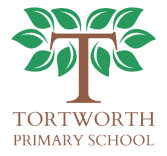the cset primary Curriculum statement
At Tortworth, we follow the National Curriculum through a thematic approach whilst also ensuring discrete teaching time is allocated to the key skills areas in English and Mathematics.
Further information on the National curriculum can be found here: https://www.gov.uk/government/collections/national-curriculum
Our thematic approach has been developed in partnership with the other primaries in our trust and is called the CSET Primary Concept Curriculum.
It's core aims are to enable children to be:
- ambitious, curious learners - ready to learn throughout their lives.
- innovative contributors - ready to play a full part in life and work.
- ethical, informed global citizens - ready to be citizens of the world.
- heathy, resilient individuals - equipped to lead fulfilling and healthy lives.
The delivery of our school curriculum is fully inclusive for all learners and fully meets the duties outlined in the Equalities Act 2010 and the Special Educational Needs and Disabilities Regulations 2014. Themes are planned to enthuse and engage children in their learning. Extra support or resources are provided as appropriate.
More information about what is being studied each term can be found on the class pages.
More detailed information about the CSET Primary Concept Curriculum, including subject specific information, can be found below and on the submenus (right).
Click here to see each class' Big Enquiry Questions and Key Themes
Intent
What is the rationale for our Concept Curriculum?
Our Primary school curriculum will develop the whole child. Our curriculum purpose is to prepare children to leave every CSET primary with the confidence, ability and desire to make the world a better place. We plan for them to experience, explore, create, question, organise and enjoy their learning across a broad range of subjects. We believe that the curriculum must be a mix of substantive and disciplinary knowledge, transferable skills, in depth study and opportunities to identify patterns and connections between concepts and ideas. Our Curriculum gives oracy equal priority with reading, writing and understanding mathematical concepts and aims to develop oracy through the study of all three. Our curriculum will extend beyond what is taught in the classroom. It will ensure the environment supports learning, that experiences broaden horizons- organising visits, meeting experts and interesting, inspiring people, as well as enrichment through opportunities outside of the classroom and school; seeing ‘behind the scenes’ as well as being in the audience. It will ensure expertise is achievable for all and every child will feel enriched as a result. The curriculum will permeate all aspects of schooling so that learners are ready to meet the world.
What should our curriculum aim to achieve?

Within each subject studied, children will adopt a ‘state of being’, becoming Scientists, Geographers, Historians, Designers, Musicians and Artists as well as avid readers, effective writers, confident mathematicians and prepared for the digital world. Starting small, then gradually expanding their knowledge and skills horizons, our children will have inclusive opportunities to explore and question. The curriculum incrementally builds on an increasing base of nested knowledge and develops and refines intellectual skills. We want our learners to understand the ‘big idea’ in addition to the acquisition of knowledge and the refining and acquisition of skills.
How is the Curriculum delivered?
Our pedagogical approach ensures that the delivery of knowledge and the instruction of skills heightens curiosity and excites the imagination of our children. Teachers promote enquiry and facilitate discussion and questioning. We all learn by making mistakes and our children should understand that. Teachers realise that task completion is not a proxy for understanding and plan backwards, thinking about what children need to learn before deciding on the activity to deliver that learning. They use a framework of knowledge and skills to deliver learning. Assemblies are used to help share big ideas and more challenging intellectual concepts and the learning environment is carefully used to support learning as it happens as well as celebrating learning success. Teaching should allow exploration and experimentation. Teachers design learning so that it is sometimes blocked together in ‘Depth studies’, sometimes linked to other concepts and sometimes drip fed in a ‘little and often’ way.
Three 'big' ideas

Implementation - Subject Statements









Intent - Curriculum Overview
A collective approach.
Teachers are encouraged to consider the subject specific concepts for each subject when planning and cross reference with the key learning intentions for each subject to ensure that children are exposed to the knowledge and skills that are intended for their age range. Each big term is mapped out with this in mind and a framework for what is taught and when supports coherent progression across year groups and key stages. Teachers work collectively across our schools to share ideas about the pedagogical approaches that work best for the children in all our settings.
Our curriculum overview reflects our school have mixed-age classes, following a two-year cycle to ensure children receive breadth of study during their time at the school.
Impact
How will we know our Curriculum has delivered for our children?
Judging the impact…
Our Primary Curriculum should ensure that all our children are developed intellectually, physically, spiritually, socially and emotionally. We want our children to leave CSET Primary settings able to be discerning about the world around them and have the ability to critically think. They should be world aware. They should leave school with the confidence to try new things, enjoy the process of learning and have the ability and desire to make the world a better place by using skills and knowledge to effect well informed change. They should be able to make connections, transfer skills to new situations and take responsibility for the future success of their life-long learning.
Our curriculum and pedagogical approach will produce ambitious, curious learners, innovative contributors, ethically informed global citizens and healthy, resilient individuals.


